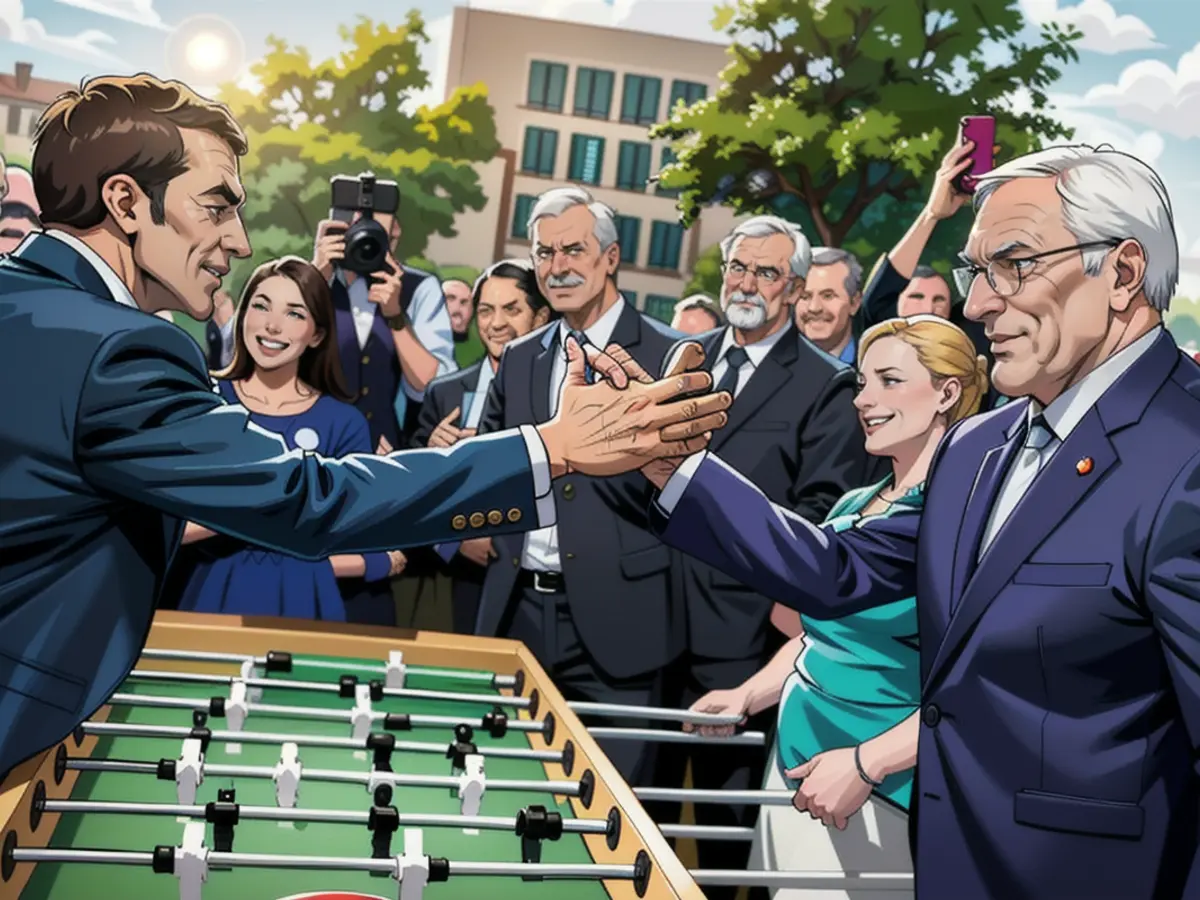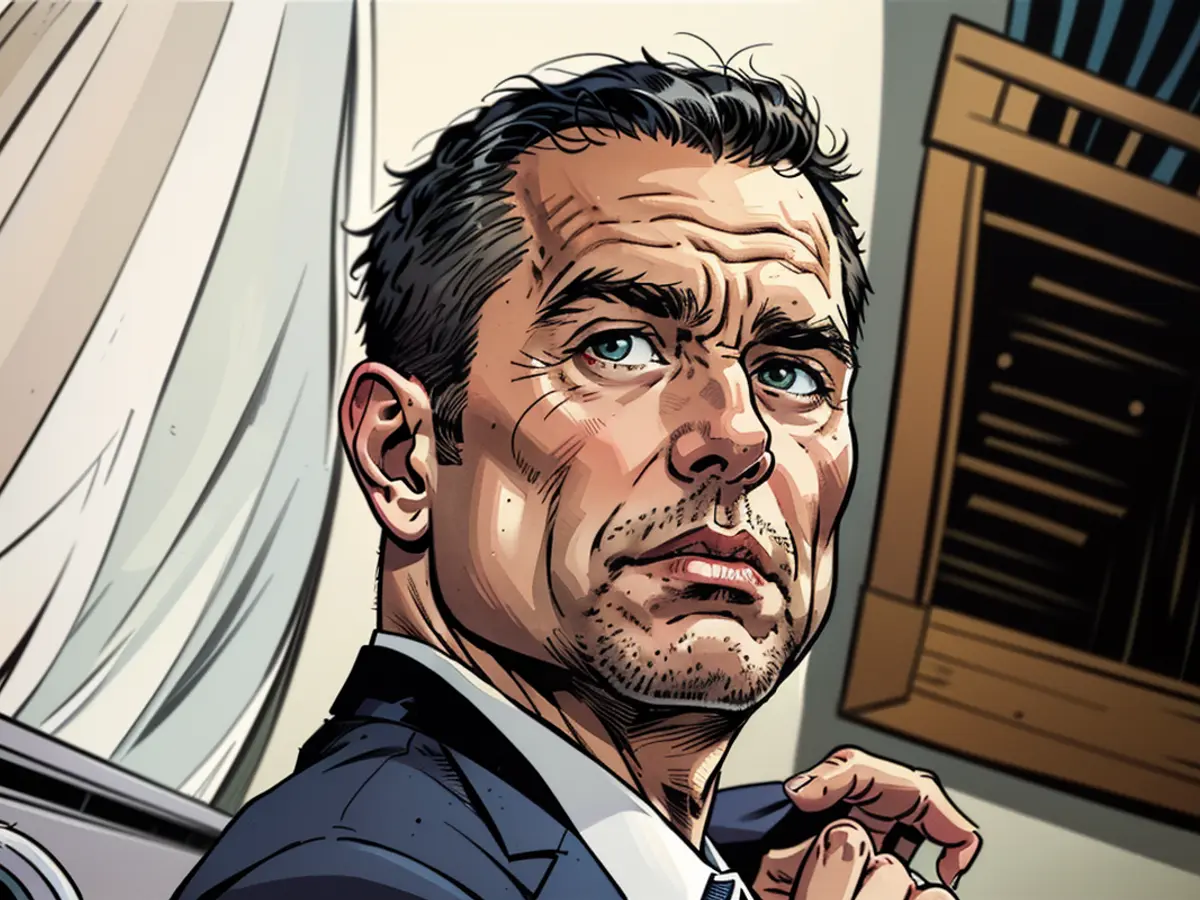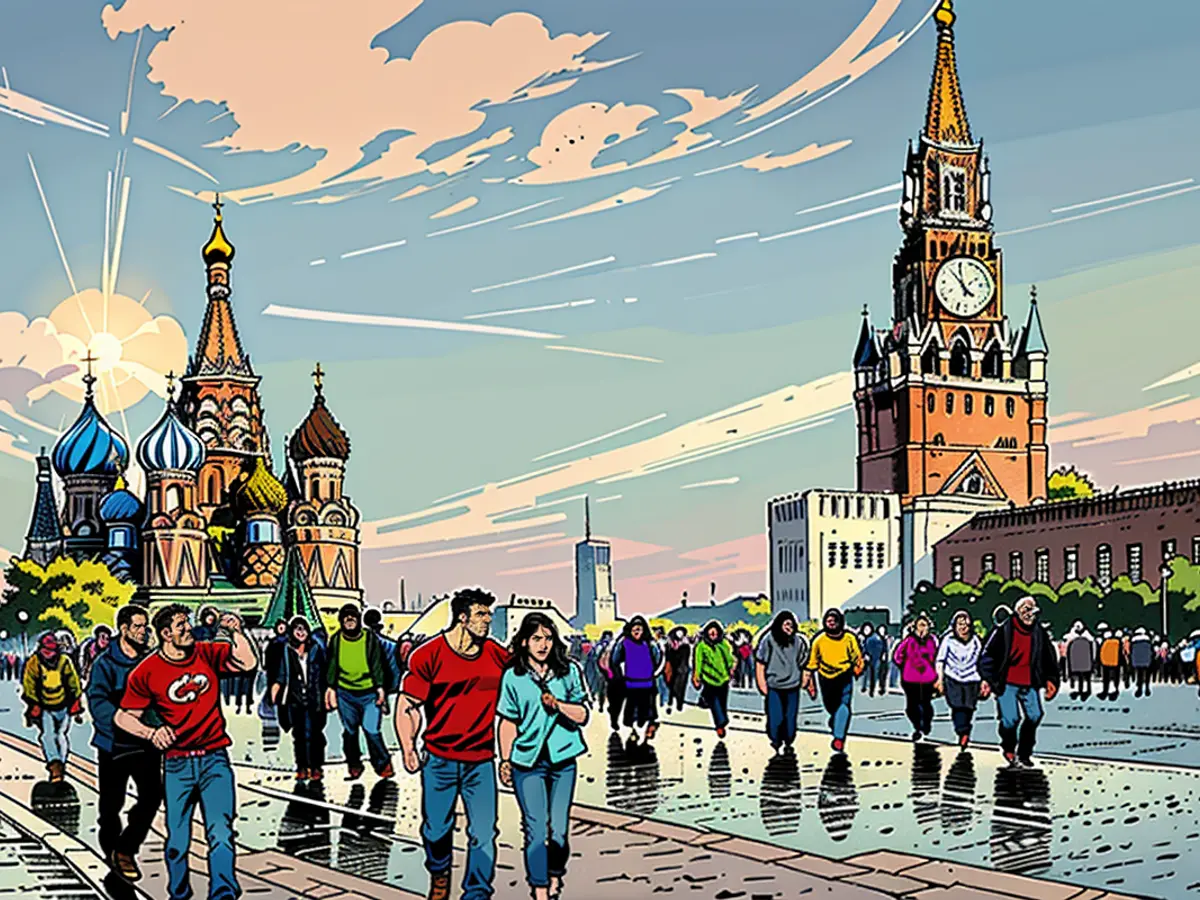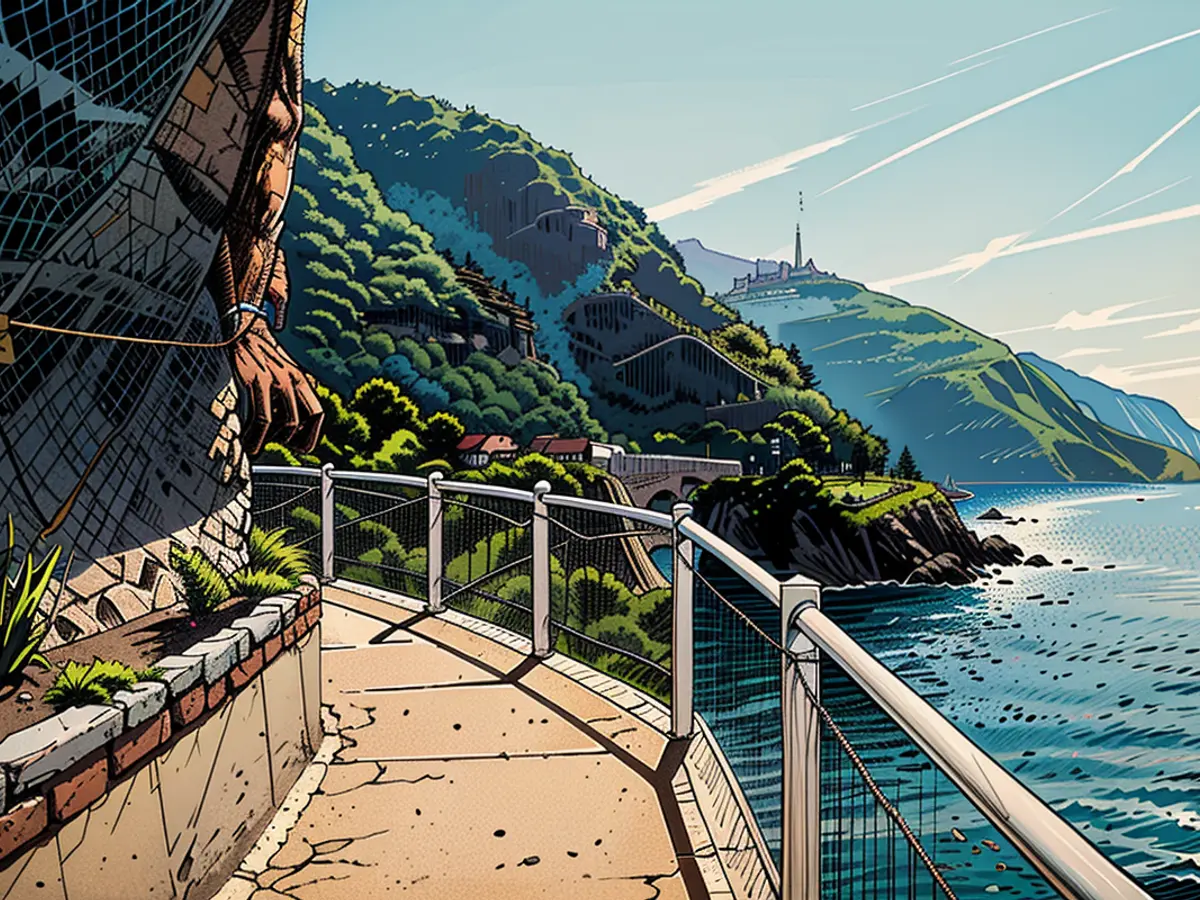Official trip to another nation - Macron advocates for deepening French-German cooperation.
During Emmanuel Macron's first state visit to Germany in 24 years, he aims to revitalize the Franco-German partnership. While in Berlin with his wife Brigitte, he emphasized the significance of collaboration between the two countries for the sake of Europe. Macron firmly stated that "Europe could potentially cease to exist" during his address at Sorbonne University in Paris. He reiterated how crucial Franco-German ties are for the continent.
Furthermore, Macron dispelled the notion that the Franco-German alliance had lost traction. He declared with confidence, "We're moving forward," as per the official interpretation of his words.
Steinmeier: "Celebrating democracy together"
Macron and Federal President Frank-Walter Steinmeier began their journey by attending the democracy festival in the government district. In Steinmeier's words, "We intend to make this trip a real celebration; we want to celebrate democracy together."
On the following day, Macron plans to deliver a speech on Europe in front of Dresden's Frauenkirche Church, and on Tuesday, he will receive the International Westphalia Peace Prize in Münster. Prior to his meeting with Chancellor Olaf Scholz (SPD) and various cabinet members at Schloss Meseberg, an estate just outside of Berlin, the agenda will revolve around European defense and competition policy.
Unsuccessful first attempt at a state visit
French presidents often pay a visit to Germany for political discussions. However, the previous formal state visit was undertaken by President Jacques Chirac in 2000. Unlike other visits, a state visit mandates a set protocol, which encompasses a state banquet and visiting a location outside of the capital. This is Macron's first presidential trip to Saxony, one of East Germany's five states including Berlin.
Macron had initially planned a state visit last May, but it was postponed due to unrest in France. The trip will now unfold in a slightly condensed form.
Encouragement to participate in European elections
Host Steinmeier anticipates exploiting the visit to express and commemorate the unique friendship between France and Germany. This is why Steinmeier has invited Macron as the sole foreign guest to the events commemorating the 75th anniversary of the Basic Law, according to the Office of the Federal President.
Reason for the visit also includes encouraging Germans to vote in the approaching European elections. Macron advocated for this during the Berlin Democracy Festival.
Tense connections between the two capitals
Regardless of the cordiality between Macron and Steinmeier, Berlin-Paris relations are seen as strained at the government level. The two administrations are frequently at odds over critical issues. This situation includes supporting Ukraine as well as economic policies concerning the United States and China. These matters will be discussed during Tuesday's Franco-German ministerial council at Schloss Meseberg, Germany's official guest house to the north of Berlin.
Macron is advocating for increased European autonomy, including a European defense strategy and safeguarding the economy from unethical competition stemming from China and the USA. Conversely, Scholz remains focused on nurturing a transatlantic orientation and upholding China as an important trading partner. Moreover, Macron's proposal for deploying ground troops in Ukraine was met with rejection by Scholz. Scholz also opposes the supply of long-range Taurus cruise missiles to Ukraine. In return, Berlin accuses Paris of insufficiently supporting Ukraine as the EU's second-largest economy.
Lacking answers from Germany
Criticizing the alleged deterioration of Franco-German partnership, CDU Chairman Friedrich Merz urged the German government to act. "We need a clear European policy signal before Macron's visit," Merz stated during an interview with rbb24 Inforadio. Merz voiced his dissatisfaction with Germany's lack of response to Macron's speeches on Europe at the Sorbonne. The first speech was presented during Merkel's (CDU) term in office.
In Macron's second address last April, he cautioned that Europe might become "weaker or even less significant" by 2030. He proposed a European defense strategy, a shared arms industry, and an expedited warfare financing system through EU resources to safeguard the continent from the dangers posed by Russia. Scholz remarked at Platform X, "The common goal of France and Germany is for Europe to remain strong." He then turned to Macron and commented, "Your speech contains worthwhile ideas on how we can achieve this."
Read also:
- Year of climate records: extreme is the new normal
- Precautionary arrests show Islamist terror threat
- UN vote urges Israel to ceasefire
- SPD rules out budget resolution before the end of the year
- Emmanuel Macron, during his state visit to Germany, emphasized the importance of deepening French-German cooperation for the sake of Europe.
- The French head of state, while in Berlin with his wife Brigitte, highlighted the significance of collaboration between France and Germany.
- Frank-Walter Steinmeier, the Federal President of Germany, stated that the trip would be a celebration of democracy.
- In his speeches at Sorbonne University in Paris, Macron warned that Europe could potentially cease to exist if Franco-German ties weakened.
- Macron is scheduled to deliver a speech on Europe in front of Dresden's Frauenkirche Church during his visit.
- Olaf Scholz, the Chancellor of Germany, will meet with Macron and various cabinet members at Schloss Meseberg to discuss European defense and competition policy.
- Macron initially planned a state visit to Germany last May but had to postpone it due to unrest in France.
- Friedrich Merz, the CDU Chairman, criticized the German government for not responding adequately to Macron's speeches on Europe.
- Macron advocated for increased European autonomy, including a European defense strategy, during his speeches at the Sorbonne University.
- Steinmeier invited Macron as the sole foreign guest to the events commemorating the 75th anniversary of the Basic Law to encourage Germans to vote in the approaching European elections.
- During the Berlin Democracy Festival, Macron encouraged Germans to participate in the European elections to strengthen Europe.
- Germany and France are at odds on critical issues such as supporting Ukraine, economic policies concerning the United States, and China's role as an important trading partner.
Source: www.stern.de







